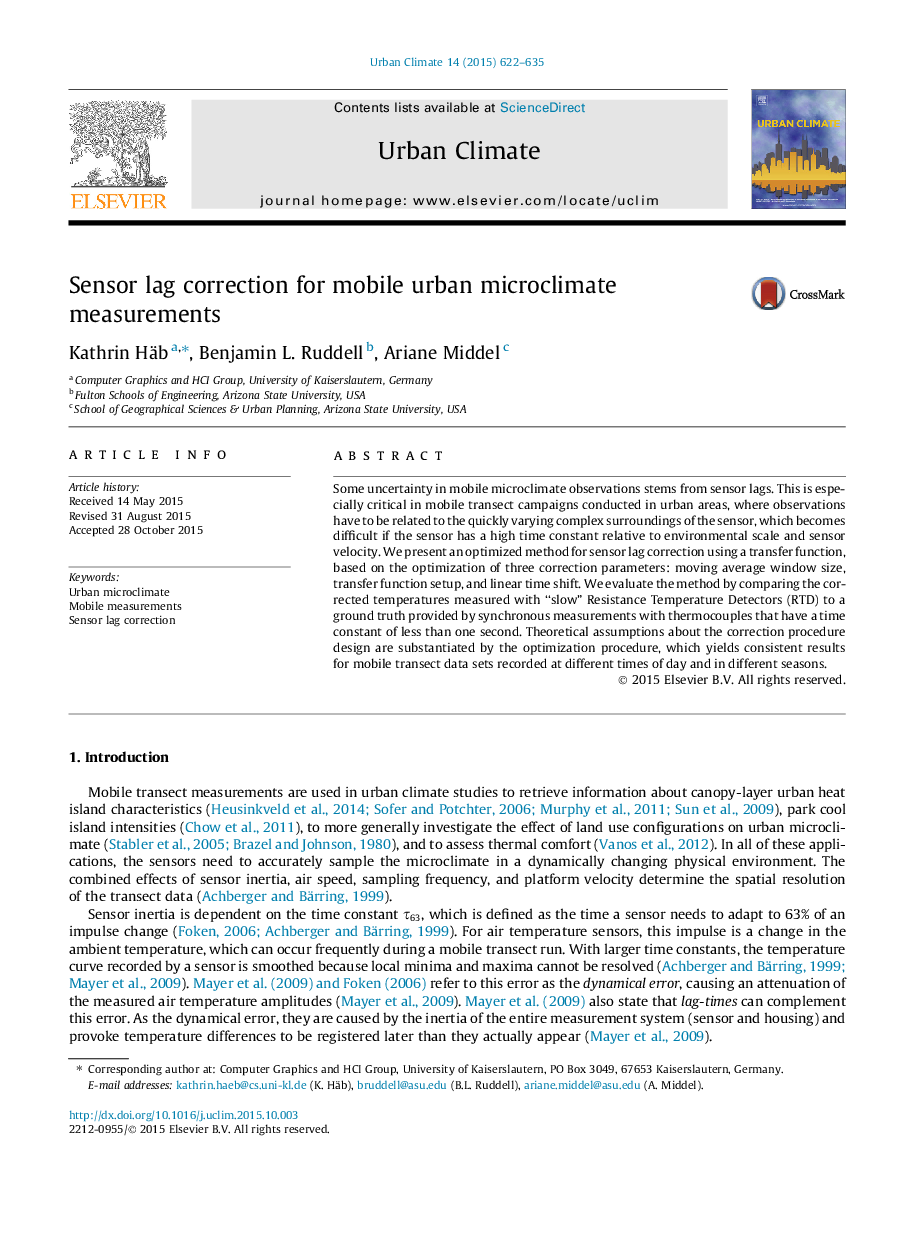| Article ID | Journal | Published Year | Pages | File Type |
|---|---|---|---|---|
| 10260269 | Urban Climate | 2015 | 14 Pages |
Abstract
Some uncertainty in mobile microclimate observations stems from sensor lags. This is especially critical in mobile transect campaigns conducted in urban areas, where observations have to be related to the quickly varying complex surroundings of the sensor, which becomes difficult if the sensor has a high time constant relative to environmental scale and sensor velocity. We present an optimized method for sensor lag correction using a transfer function, based on the optimization of three correction parameters: moving average window size, transfer function setup, and linear time shift. We evaluate the method by comparing the corrected temperatures measured with “slow” Resistance Temperature Detectors (RTD) to a ground truth provided by synchronous measurements with thermocouples that have a time constant of less than one second. Theoretical assumptions about the correction procedure design are substantiated by the optimization procedure, which yields consistent results for mobile transect data sets recorded at different times of day and in different seasons.
Related Topics
Physical Sciences and Engineering
Earth and Planetary Sciences
Earth and Planetary Sciences (General)
Authors
Kathrin Häb, Benjamin L. Ruddell, Ariane Middel,
